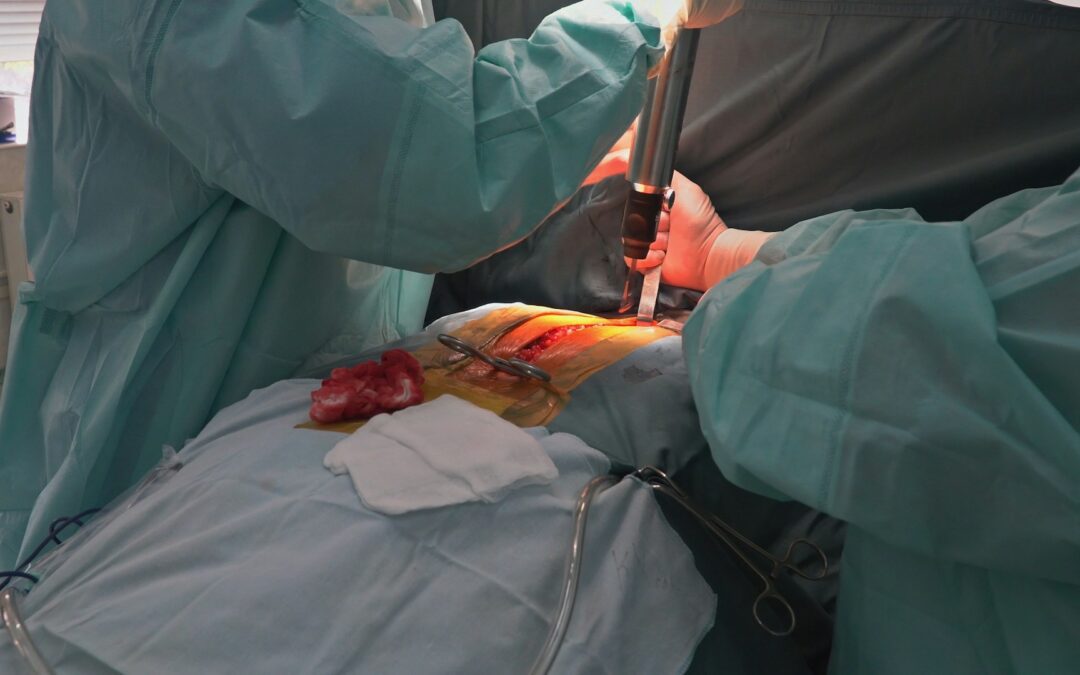Autopsies have played a pivotal role in advancing medical science for centuries. By carefully examining the human body after death, medical professionals gain valuable insights that drive new discoveries, enhance treatment methods, and improve patient care.
Beyond determining the cause of death, autopsy findings provide critical data for medical research, disease detection, and the refinement of healthcare practices. From identifying unknown diseases to evaluating the effectiveness of treatments, these postmortem examinations continue to shape modern medicine.
In recent years, the integration of virtual autopsies (MRI & CT scans), artificial intelligence, and forensic pathology has further revolutionized the field, making autopsies more precise and informative than ever before.
How Autopsies Contribute to Medical Science
Medical autopsies provide an unmatched level of detail about diseases and their impact on the human body. Unlike clinical diagnosis, which may rely on symptoms and test results, autopsies offer a direct examination of internal organs, tissues, and disease progression.
1. Disease Mechanisms & Medical Research
Autopsies allow researchers to study how diseases evolve and affect different organs. For example, postmortem examinations have helped scientists understand how neurodegenerative conditions like Alzheimer’s disease and Parkinson’s disease progress, leading to more effective treatments.
Additionally, autopsy reports contribute to medical guidelines and best practices, helping doctors refine diagnostic techniques and improve patient outcomes.
2. Identifying Undiagnosed Conditions
Many diseases remain undiagnosed during a person’s lifetime, especially if symptoms are mild or mimic other conditions. Studies show that up to 30% of autopsy cases uncover previously undiagnosed medical conditions, including rare genetic disorders, infectious diseases, and hidden cancers.
This knowledge not only helps researchers develop new treatment strategies but also informs families about potential hereditary risks, allowing them to seek early medical intervention.
3. Improving Treatments and Medical Procedures
Autopsies play a direct role in enhancing treatment efficacy and surgical techniques. By studying how medications interact with the body and identifying treatment failures, doctors can refine protocols to reduce risks and improve patient survival rates.
For instance, autopsy data has been instrumental in identifying complications from surgical procedures, medical devices, and drug interactions, leading to improved patient safety measures.
Discovering New Diseases Through Autopsies
Autopsies have historically contributed to the discovery of new diseases and medical conditions, many of which were unknown during a patient’s lifetime.
1. Case Studies in Medical Discoveries
- HIV/AIDS (1980s): Early autopsies helped doctors recognize the patterns of immune system failure, leading to the identification of HIV as the cause.
- COVID-19 (2020s): Autopsy reports revealed that COVID-19 was not just a respiratory disease but also affected the heart, brain, and blood vessels, reshaping treatment approaches.
- Heart Disease & Stroke: Many cases of sudden death have been linked to undiagnosed heart conditions, prompting better preventive care strategies.
By systematically analyzing postmortem data, scientists continue to identify emerging health threats and develop countermeasures before they become widespread.
The Role of Virtual Autopsies & AI in Modern Medicine
With the advancement of medical imaging technologies, traditional autopsies are now complemented by virtual autopsies using MRI and CT scans. These non-invasive techniques provide high-resolution images of internal structures, allowing pathologists to assess diseases without the need for traditional dissections.
Benefits of Virtual Autopsies:
Non-invasive & respectful: Preferred by families with religious or ethical concerns.
Enhanced forensic analysis: Helps in legal and criminal investigations.
AI-assisted diagnostics: Machine learning algorithms analyze postmortem data for more precise conclusions.
The integration of artificial intelligence in autopsy analysis is also streamlining the process. AI models can compare autopsy results with vast medical databases, identifying patterns that might be overlooked by human pathologists. This innovation is helping detect new disease strains, genetic conditions, and treatment outcomes faster than ever before.
Ethical and Legal Considerations of Autopsies
While autopsies provide invaluable medical insights, they also raise important ethical and legal questions.
- Who can request an autopsy? In most cases, autopsies are performed with consent from the deceased’s family unless required by law in criminal investigations or public health emergencies.
- Religious & cultural perspectives: Some cultures and religions discourage autopsies, making virtual autopsies a preferred alternative.
- Confidentiality & patient rights: Autopsy findings must be handled with strict medical privacy regulations to protect patient and family confidentiality.
Addressing these ethical considerations ensures that medical advancements continue while respecting individual and family rights.
Autopsies & the Future of Medical Innovations
The role of autopsies extends beyond understanding past medical cases—they are essential for shaping the future of medicine, treatment, and healthcare technology.
1. Advancements in Drug Development
- Pharmaceutical companies rely on autopsy data to evaluate how medications interact with different organs.
- Postmortem studies help identify drug-related complications, leading to safer and more effective treatment options.
2. Refining Medical Procedures & Technologies
- Autopsy reports help improve surgical techniques by identifying procedural errors and complications.
- Insights from failed medical implants and devices drive innovation in designing safer alternatives.
3. Preventive Healthcare & Public Health Policies
- Studying patterns in autopsy data allows researchers to predict disease trends and outbreaks.
- Public health officials use autopsy findings to develop policies that reduce disease transmission and mortality rates.
By continuously learning from postmortem studies, healthcare providers, researchers, and policymakers can refine modern medicine, ultimately leading to better patient outcomes worldwide.
Conclusion
Autopsies remain a cornerstone of medical research, disease discovery, and healthcare advancements. From identifying new diseases to refining treatments and guiding public health policies, the insights gained from these examinations contribute significantly to modern medicine.
With the rise of virtual autopsies and AI-driven diagnostics, the future of postmortem studies looks even more promising. These advancements will continue to shape medical science, improving patient care and uncovering life-saving knowledge.
If you’re looking for more information or need to request an autopsy, reach out to 1-800-Autopsy. Our team is dedicated to providing answers while contributing to the future of medical science.








